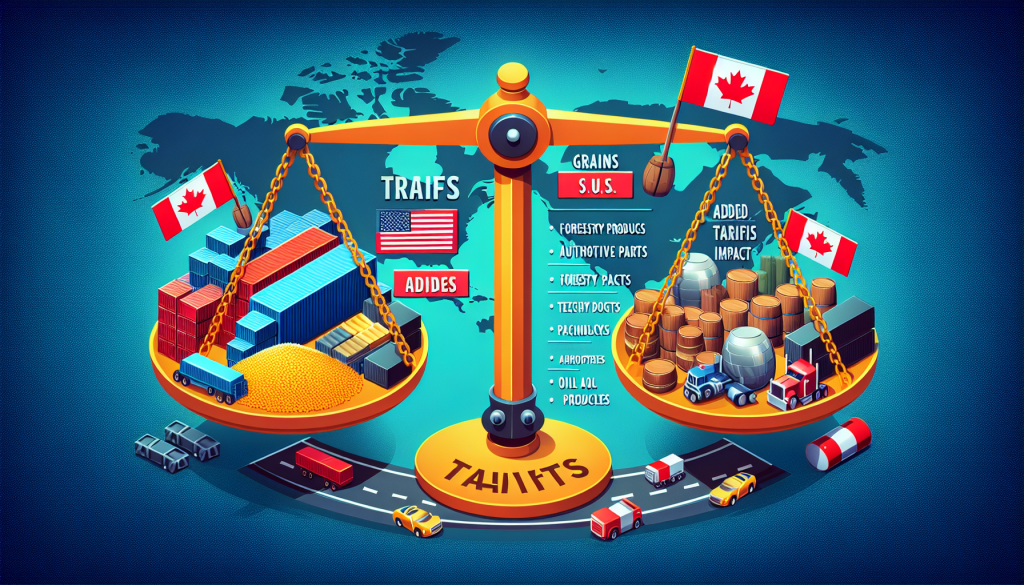Proposed U.S. Trade Tariffs: Economic Threats from a Canadian Perspective

Implications of Proposed U.S. Trade Tariffs: A Canadian Perspective
As the U.S. presidential election looms, a new report from the Canadian Chamber of Commerce is raising the alarm over protectionist trade policies like those previously proposed by Donald Trump. These policies, including potential tariffs, pose significant economic threats to both Canada and the United States. Authored by Trevor Tombe, an economics professor at the University of Calgary, the report concerns itself with the lack of awareness among Americans regarding the critical nature of U.S.-Canada trade relationships, especially during such uncertain geopolitical times.
Key Warnings from the Report
While Canadians largely acknowledge the importance of trade with the U.S., the reciprocal understanding appears lacking south of the border. This disconnect is a troubling element at a time when both presidential candidates have discussed protectionist stances that could impact trade agreements, like the Canada-U.S.-Mexico Agreement, up for review in 2026.
Tombe’s report highlights the movement of both American political parties towards protectionism. Vice President Kamala Harris has openly opposed the NAFTA replacement, negotiated during Trump’s regime, over concerns about job outsourcing in major auto companies.
Potential Economic Impact
The report projects dire economic repercussions if Trump’s proposed 10% across-the-board import tariffs are enacted. Both nations would suffer; the Canadian economy could shrink by nearly 1%, translating into a $30 billion annual hit. The repercussions for the U.S. are even steeper, with losses estimated at $125 billion per year. If retaliatory tariffs arise globally, Canada could face an income reduction of 1.5% and a productivity drop of 1.6%, totaling a $45 billion economic setback—equivalent to half the impact of a normal recession.
Historical Context and Today’s Complexities
Tombe draws parallels to the 1971 “Nixon Shock” when a temporary 10% import surcharge was introduced, resulting in a 2.6% dip in Canadian exports to the U.S. However, given today’s more intricate trade dynamics, the negative impacts now would be far more severe.
Both countries’ economies are deeply woven together through sophisticated supply chains and investments. Canadian exports play a vital role within U.S. production processes, echoing a broader economic symbiosis. Trade disruptions could severely affect U.S. states that are heavily reliant on Canadian trade, such as Michigan, Illinois, and Wisconsin.
Conclusion
The Canadian Chamber of Commerce report underscores the critical nature of U.S.-Canada economic ties, portraying the immense mutual benefits and warning of the significant costs of disrupting these relationships. As policymakers and business leaders continue their dialogues across borders, safeguarding these intricate trade networks remains paramount for ensuring economic stability and growth on both sides.
Keywords: U.S.-Canada Trade, Economic Impact, Trade Tariffs, Protectionist Policies, Canada-U.S.-Mexico Agreement, Donald Trump Tariffs, Canadian Economy, U.S. Economy, Trevor Tombe, International Trade Dynamics.







